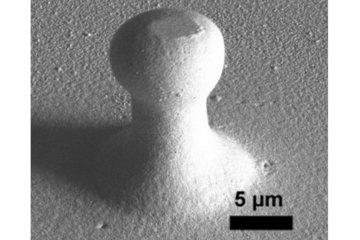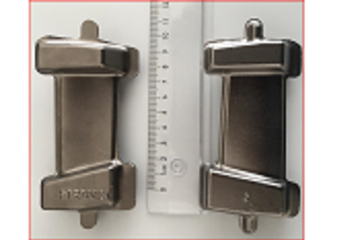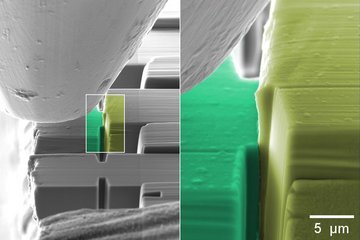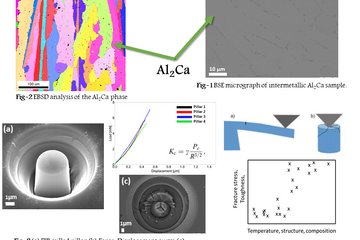All genres
81.
Talk
Scale bridging modeling of hydrogen embrittlement. ICAMS Klausurtagung, Münster, Germany (2012)
82.
Talk
Scale bridging modeling of hydrogen embrittlement. MMM 2012, Singapore City, Singapore (2012)
83.
Poster
On the commensuration of plastic plowing at the microscale. Nanobrücken 2020: Nanomechanical Testing Conference & Bruker User Meeting, Düsseldorf, Germany (2020)
84.
Poster
Plasticity during micro-wall wear test: single dislocation wall formation. Nanobrücken 2020: A Nanomechanical Testing Conference. 2020, Düsseldorf, Germany (2020)
85.
Poster
Hydrogen-microstructure interactions in binary Fe–Cr alloys at small scale. IAMNano 2019, Düsseldorf, Germany (2019)
86.
Poster
Hydrogen-microstructure interactions in binary Fe–Cr alloys at small scale. EUROMAT 2019, Stockholm, Sweden (2019)
87.
Poster
Deformation of pearlitic steels during nanotribology. 46th Leeds-Lyon Symposium on Tribology 2019, Lyon, France (2019)
88.
Poster
Hydrogen-microstructure interactions in bcc FeCr alloys by in-situ nanoindentation. ECI, Nanomechanical Testing in Materials Research and Development VI, Dubrovnik, Croatia (2017)
89.
Poster
Nanotribology in Pearlite. German-French summer school 2015 "Tribology Today", Bad Herrenalb, Germany (2015)
90.
Poster
Nanostructure and micromechanical properties of Mo2BC thin films. IAMNano 2015 Hamburg: International Workshop on Advanced and In-situ Microscopies of Functional Nanomaterials and Devices, Hamburg, Germany (2015)
91.
Poster
Nanotribology: Microplowing induced plasticity in austenite. Gordon Research Conference: Tribology, Waltham, MA, USA (2014)
92.
Poster
Nanotribology and Microstructure Evolution in Pearlite. 3rd European Symposium on Friction, Wear and Wear Protection, Karlsruhe, Germany (2014)
93.
Poster
Nanotribology: Size-dependent friction coefficient and surface topology evolution. GDRi CNRS MECANO General Meeting on the Mechanics of Nano-Objects, MPIE, Düsseldorf, Germany (2013)
94.
Poster
Dislocation emission from short penny-shaped cracks: A multiscale model of atomistic & dislocation dynamics. Nanomechanical Testing in Materials Research and Development IV, Olhão (Algarve), Portugal (2013)
95.
Thesis - PhD
Influence of plastic anisotropy on the deformation behaviour of Austenitic stainless-steel during single micro-asperity wear. Dissertation, Ruhr-Uiversität-Bochum (2023)
96.
Thesis - PhD
On the cementite behavior during tribology and experimental methods of microscale wear. Dissertation, Ruhr-Universität Bochum (2022)
97.
Thesis - Habilitation
Exploration of Crack Propagation in Metals by Length-Scale Dependent Simulations. Habilitation, Ruhr-Universität Bochum (2019)
98.
Thesis - Bachelor
Entwicklung von Kontinuumsmodellen zur Wasserstoffversprödung an Rissen. Bachelor, Ruhr-Universität Bochum, Bochum, Germany (2011)











